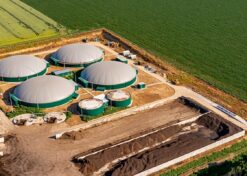
Alex Cruickshank presents at CIGRE Information Session
Alex Cruickshank | 21st May 2018On Tuesday 8th May, Alex Cruickshank presented a session as part of the CIGRE Melbourne Information Session.
The session was designed to introduce CIGRE to people that are not current members and to update existing members. This session was second in a series that are being held in each of the state capitals.
The early presenters to the session introduced CIGRE, noting that it was established in 1921 with the aim of improving electricity systems in Europe. CIGRE now has over 15 thousand members across 90 countries with the same goal; improving the operation of electricity systems around the world with the added goal of developing measures to provide low cost energy to the 1 billion people that currently do not have access to reliable energy
The work is CIGRE is split across sixteen study committees ranging from technical matters like rotating machines and networks to market related issues and developments in information technology. CIGRE is also at the forefront of new ideas in distributed generation, High Voltage DC links, management of intermittent plant and energy industry transformation. Each study committee examines specific aspect of the industry and establishes working groups to examine key topics.
Alex presented on the work of three working groups that he was involved with and that are relevant to Australia:
- Capacity mechanisms. Working group C5-17 recently published a report on their work examining mechanisms for remunerating capacity in the various markets around the world. He noted that two specific forms are in use in Australia; a strategic reserve of capacity funded by customers, the RERT and a new proposal for an obligation to provide dispatchable capacity to the market. The presentation noted how these forms of mechanisms fit within the range of mechanisms available. Greg Thorpe was also involved in this working group.
- Demand side response. Working group C5-19 recently published a report on regulatory aspects of demand side response providing an overview of the drivers and enablers for successful scheme implementation and documenting specific applications from the USA and Europe. The report noted that DSR had been implemented to support capacity reserves, like in Australia, but also provided ancillary services and other services. Interestingly for Australia, DSR providers participate in the energy pool and day-ahead markets in some markets. Lance Hoch was also involved in this working group.
- Pricing and cost allocation. Working group C5-16 is examining how the costs of the energy industry can be efficiently allocated to customers so that they can effectively respond to the prices and be informed on how they interact with the provision of energy. Alex noted in his presentation that effective pricing is essential for the industry to be sustainable and to allow customers to make informed decisions on their use of energy and decisions to install PV or storage systems.
Alex also noted that there are current working groups looking at smart grids, more flexible market operation and how market prices are formed.
Reports published by CIGRE and a range of other relevant papers are free to members from www.e-cigre.org. Recent papers are available to the public for a small fee and other papers are free to the public.
If you have any questions on CIGRE or these topics, please call Alex Cruickshank on +614 0206 0881



